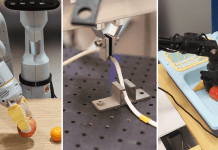Revolutionizing Fertility Treatments: The Integration of AI and Robotics in IVF
A groundbreaking biotechnology startup is shaking up the world of fertility treatments with the integration of artificial intelligence and robotics into the in vitro fertilization (IVF) process. This innovative approach has already led to successful pregnancies for 11 individuals, marking a significant advancement in precision medicine for infertility.
By harnessing the power of AI, the company is able to analyze vast amounts of data to gain a deeper understanding of human fertility. This advanced analysis allows for the optimization of IVF protocols, leading to more accurate selection of viable embryos. In parallel, robotics technology is being used to automate delicate laboratory processes, reducing the chances of human error and improving overall efficiency.
This cutting-edge technology is a game-changer for individuals struggling with infertility, offering a more precise and less invasive alternative to traditional methods. The combination of AI and robotics not only enhances the success rates of IVF procedures but also allows for personalized treatment plans tailored to the specific needs of each patient.
The company is dedicated to ongoing research and development of their technology, with the goal of making infertility solutions more accessible and supporting individuals in their journey towards parenthood. As more success stories emerge and the technology continues to evolve, this personalized approach to fertility care could become the new standard, bringing hope to millions worldwide.
Feedback from recipients of the treatment has been overwhelmingly positive, with emotional testimonials highlighting the joy and newfound hope brought about by this technology. As each success story adds to the growing body of evidence supporting this method, the future of fertility treatments appears to be on the brink of a transformative era driven by AI and robotics.
While there are challenges and controversies to navigate, such as cost, regulatory hurdles, data privacy, and ethical considerations, the advantages of increased precision, higher efficiency, and personalized care offered by this technology are undeniable. As advancements in biotechnology and AI continue to unfold, it is crucial to stay informed through reputable sources like the National Institutes of Health (NIH), EurekAlert!, World Health Organization (WHO), Nature, and Science Daily, ensuring that ethical and privacy guidelines are upheld in the pursuit of knowledge in this field.


















